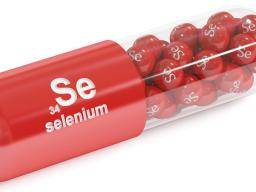Marijuana (also known as pot, weed, Mary Jane, hash, etc.) comes from the leaves and buds of the cannabis plant. The plant’s medicinal practices go back centuries, but today the plant remains controversial in the United States. The U.S. Drug Enforcement Administration has labeled marijuana a Schedule I drug, which means it’s illegal under federal law. But the use of medical marijuana is legal in many states. Currently, 28 states and the District of Columbia allow medical marijuana but the qualifying conditions can vary.
Marijuana
Marijuana has active ingredients called cannabinoids that can help regulate a number of biological functions in many organisms. Delta-9-tetrahydrocannabinol (THC) is a cannabinoid that produces a “high” feeling that many users attribute to marijuana, but it can also be beneficial for many side effects of cancer and its treatments. Cannabidiol (CBD) is another cannabinoid that has many potential applications in cancer and other serious medical conditions.
Cancer and Marijuana
A number of studies involving individuals undergoing cancer treatment have shown that medical marijuana can help in managing the following:
Pain. Marijuana can work similarly to opioids (the strongest pain relievers available) when treating individuals living with cancer related pain. Additionally, it may have anti-inflammatory effects that can help with pain. Some treatment plans may include both opioids and marijuana.
Neuropathy. Neuropathy is a medical term for nerve damage, which is a common complication of chemotherapy and other cancer treatments. It is typically characterized by a feeling of weakness, numbness, tingling, or burning in the hands and feet. Medical marijuana has been shown to provide relief for those experiencing pain from neuropathy.
Nausea and vomiting. Many individuals living with cancer experience nausea and vomiting as a side effect of chemotherapy. There are many medications available to treat this symptom. Dronabinol is a synthetic cannabinoid that is approved by the U.S. Food and Drug Administration (FDA) for this indication. Additionally, studies have shown that medical marijuana can be an effective treatment for nausea and vomiting.
Anorexia or cachexia. Anorexia is the medical term for loss of appetite. Cachexia and wasting syndrome is a phenomenon of unintentional weight loss, specifically the loss of lean muscle and fat. It is often accompanied by fatigue and a decline in functional abilities. The synthetic cannabinoid dronabinol is also FDA-approved for anorexia associated with acquired immune deficiency syndrome (AIDS), but not specifically for cancer. There are limited studies that demonstrate the efficacy of medical marijuana in the management of these symptoms. However, marijuana may improve one’s appetite and this condition may be a state-approved indication for medical marijuana.
Anti-neoplastic. Pre-clinical studies (lab and animal testing) show that marijuana may be effective in slowing down or stopping the growth of certain tumors. To date, there has been one small human trial to study this anti-cancer effect. However, there are other studies that show an association between recreational marijuana use and the development of certain cancers. These studies do not show that marijuana is a cause of these cancers, but only that there could be some link. Further research is needed to understand the safety profile and potential anti-neoplastic effects of this treatment.
The labeling of marijuana as an illegal drug has greatly limited the research of its medical applications. However, there has been increasing interest in this field over the past few decades. More studies are needed to fully understand the exciting potential benefits to improve symptoms and quality of life for individuals living with cancer.
Questions to Ask Your Health Care Team
It is important to maintain open and honest communication with your health care team about any symptoms or pain that you are experiencing. This will help your health care team determine if medical marijuana is a treatment option for you. Here are a few questions you may want to ask your doctor when discussing if medical marijuana is appropriate for you:
What are the medical marijuana laws in the state I live in? Each state has different laws dictating qualifying conditions and dispensing of medical marijuana. Medical marijuana and patient ID cards should not be used or transported out of state, given that the legal status of marijuana varies state to state. For up-to-date state and federal laws, visit www.ncsl.org/research/health/state-medical-marijuana-laws.aspx.
How can I be certified to receive medical marijuana? Registered doctors and nurse practitioners can certify you to receive medical marijuana. Ask your doctor to you help you find a registered health care professional and about the certification process in your state.
Will smoking marijuana do more harm than good? There are many different ways to take medical marijuana, like pills, edibles, vaporization, oils, drops, topical, or a spray. If you and doctor are considering medical marijuana as a treatment option, it’s important to discuss the best form for you according to the availability of products in your state.
What are the side effects of medical marijuana? Keep in mind that side effects can vary from person to person based on the product used. Medical marijuana can cause some side effects and drug interactions that should be discussed with your health care team. Some side effects include sleepiness, mood changes, decreased blood pressure, and changes in heart rate.









